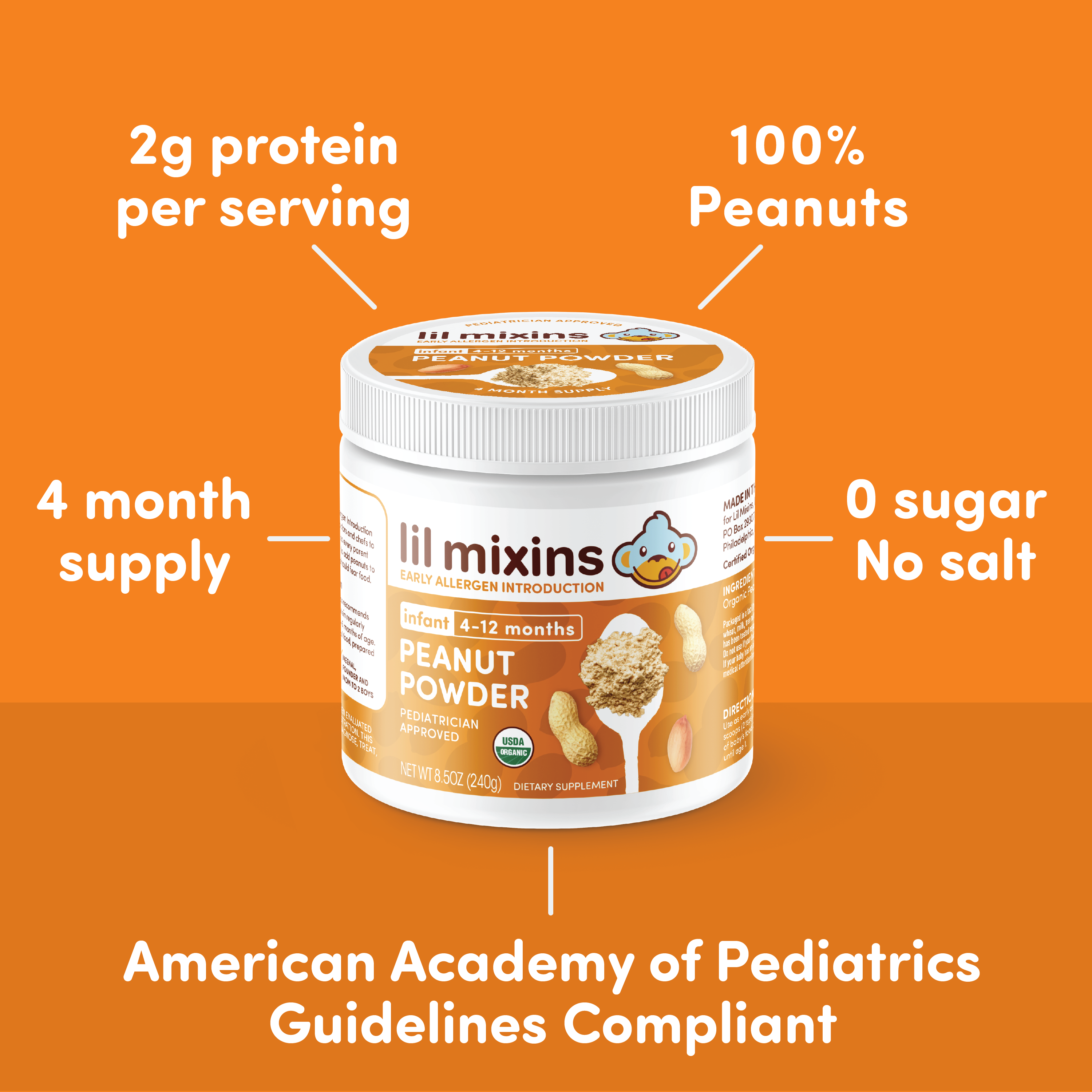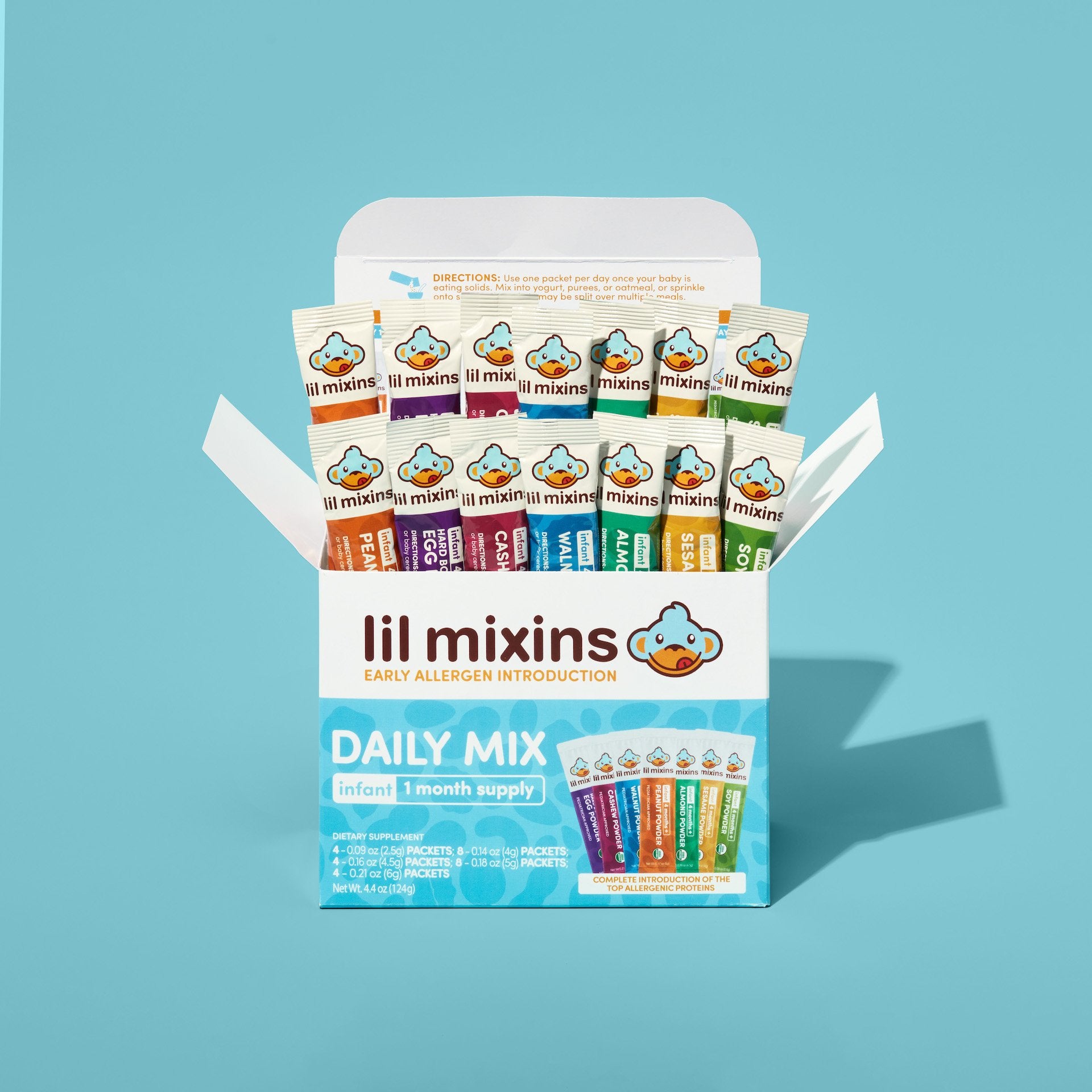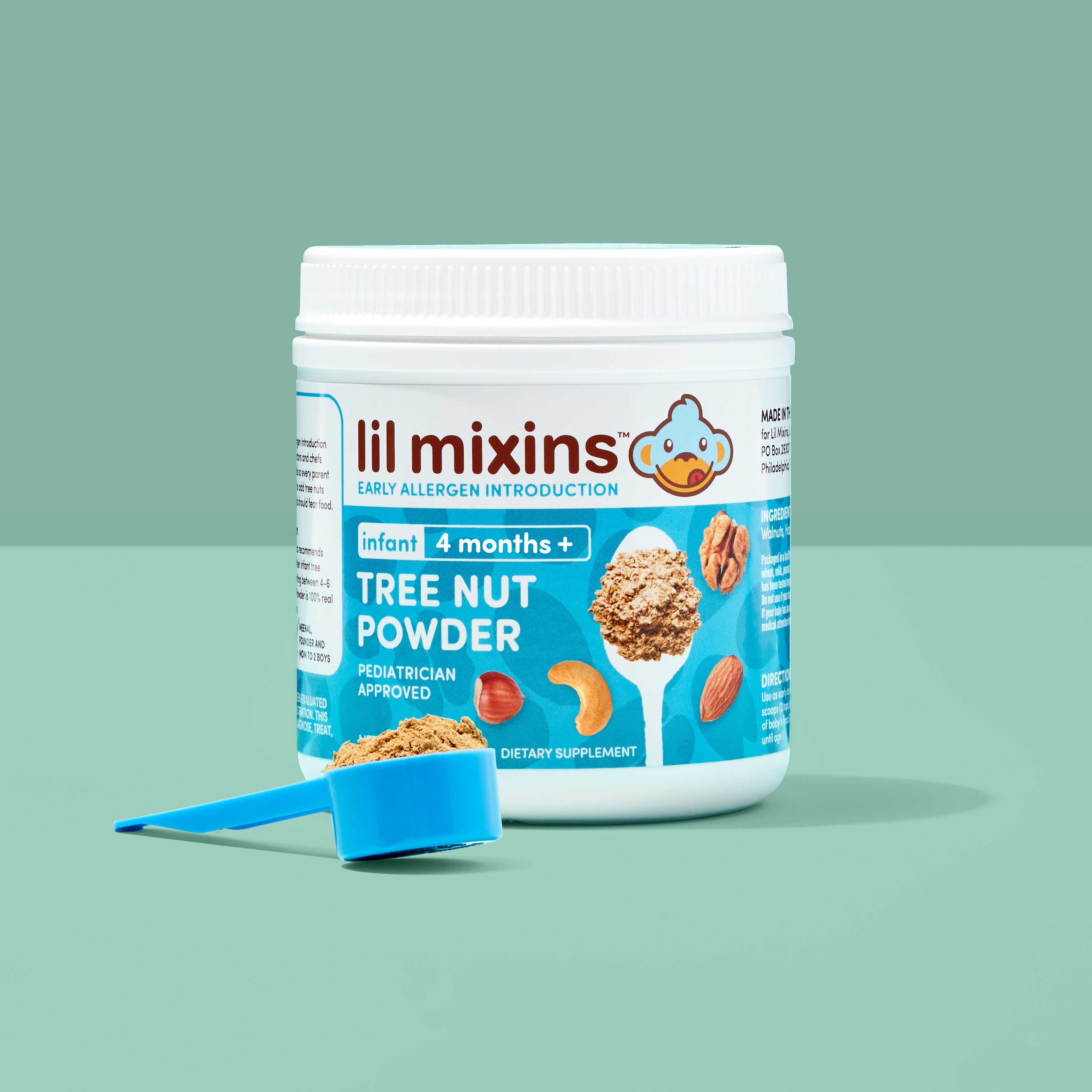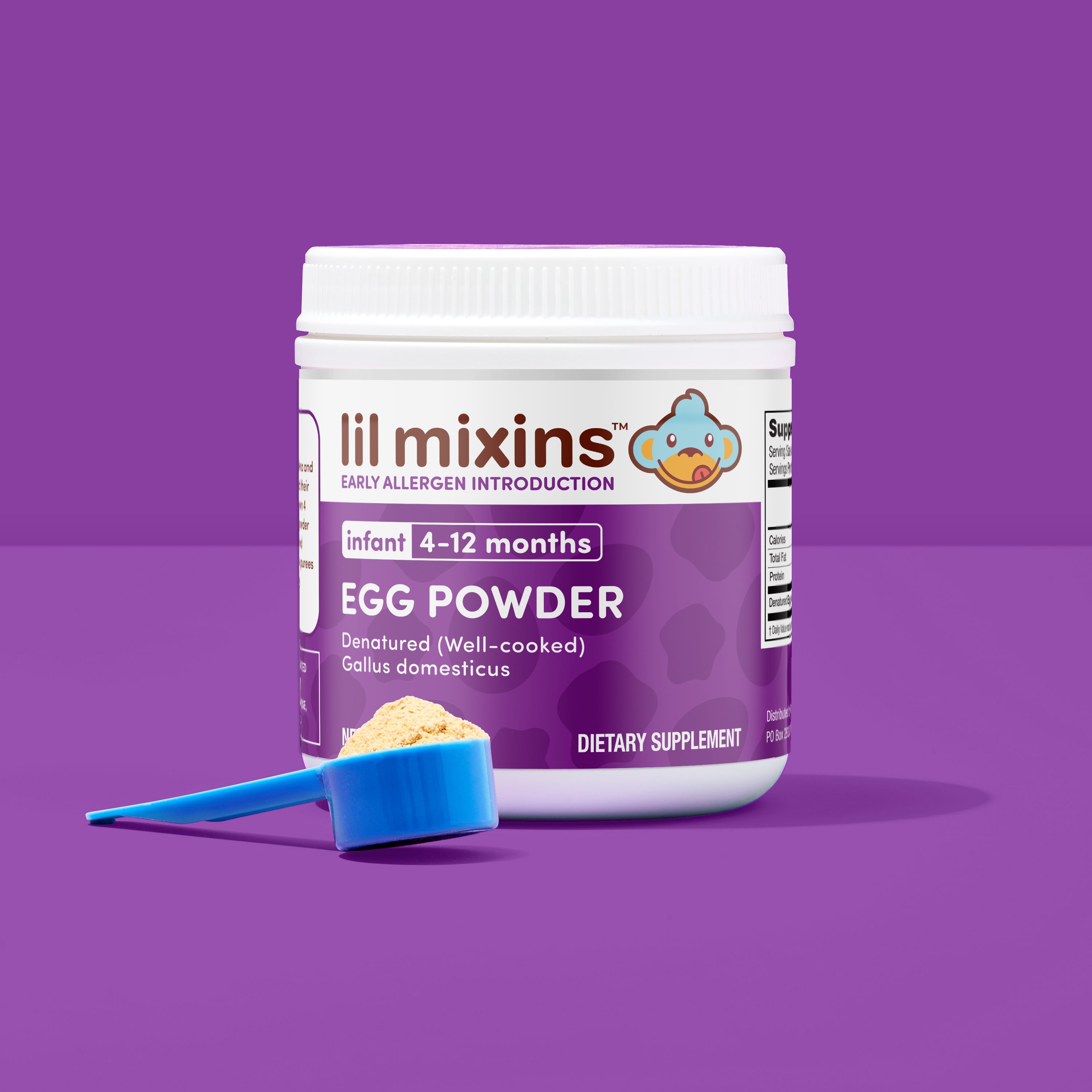Peanut Allergies and Babies: Signs and Symptoms
Introducing your baby to any new food can be nerve-wracking. But introducing peanuts can be especially scary, since peanut is one of the most common food allergies in babies.
It’s important to understand the signs and symptoms of peanut allergies in babies as you prepare to introduce your baby to peanuts.
Signs of Peanut Allergy in Babies
An allergic reaction to peanut butter in a baby most commonly presents as:
- redness around the mouth or skin that came into contact with peanut
- hives
- stomach distress such as vomiting or diarrhea.
- Runny or stuffy nose, sometimes with clear discharge
- Redness or itchiness of the nose
- Swelling of the face, including puffiness around the eyes

Redness around the mouth during an allergic reaction to peanuts

Swelling of the face and eye area from an allergic reaction
While more serious symptoms are very rare, serious symptoms of a peanut allergy in babies include:
- Coughing/wheezing
- Difficulty breathing
- Swelling of the mouth, including the lips and possibly tongue
- Fever of 97 degrees or higher
- Swelling of the throat and difficulty swallowing
- Weak pulse
- Losing consciousness
Allergic reactions to peanut happen almost immediately after eating or touching it. In rare cases, however, reactions can happen up to 4 hours later. Since most babies eat every 2 -3 hours, delayed reactions can be difficult to diagnose.
It’s best to feed your baby peanuts or peanut butter in a controlled setting where you have time to monitor them for a few hours afterwards.

Shop Peanut Mixin 4-Month Supply
What To Do If Your Baby Has a Reaction to Peanut Butter
If your baby has a mild reaction to peanut, such as redness around the mouth or hives, an age and weight appropriate amount of cetirizine (Zyrtec) (most likely 2.5ml) will reduce the reaction. Call your pediatrician’s office and stay with your baby. Most pediatricians have an on-call service to help you decide if additional help is needed.
If your baby has a severe reaction such as coughing or wheezing, OR both skin symptoms and stomach symptoms, bring them to an urgent care or emergency room immediately for observation and help.
Most parents don’t realize having two types of a mild reaction is considered a severe reaction. It means that your baby’s body is responding aggressively to the peanut, and a doctor should evaluate your baby to make sure the reaction has passed.
After either a mild or severe reaction to peanut, your baby will be referred to a specialist to properly diagnose the food allergy and give you an action plan moving forward.

Shop Daily Mix One-Month Supply
Are Airborne Peanut Allergies Real?
There has never been a documented case of a baby reacting to peanut simply by being near it. Almost all households that eat peanut or peanut butter will have peanut dust in their baby’s crib but no one has ever reported a reaction to it.
There have been documented cases of older children and adults reacting to peanuts simply by being around them, but children are very different from infants.
Even in children with severe peanut allergies, airborne reactions are incredibly rare.
Can Babies Outgrow Peanut Allergies?
About 20% of babies will outgrow a peanut allergy by age 5. Peanut allergies, along with tree nut allergies, are much more persistent than dairy and egg allergies.
Food allergies typically develop between 6 months and 1 year, though some toddlers develop a peanut allergy between 1 and 3 years.
Historical studies of children with peanut allergies show a child is more likely to outgrow a peanut allergy by age 5 if they:
- only have mild reactions to peanut
- only have a peanut allergy
- do not also have eczema or asthma
Interestingly, boys are more likely to outgrow food allergies than girls, even though they are more likely to develop food allergies in the first place.






